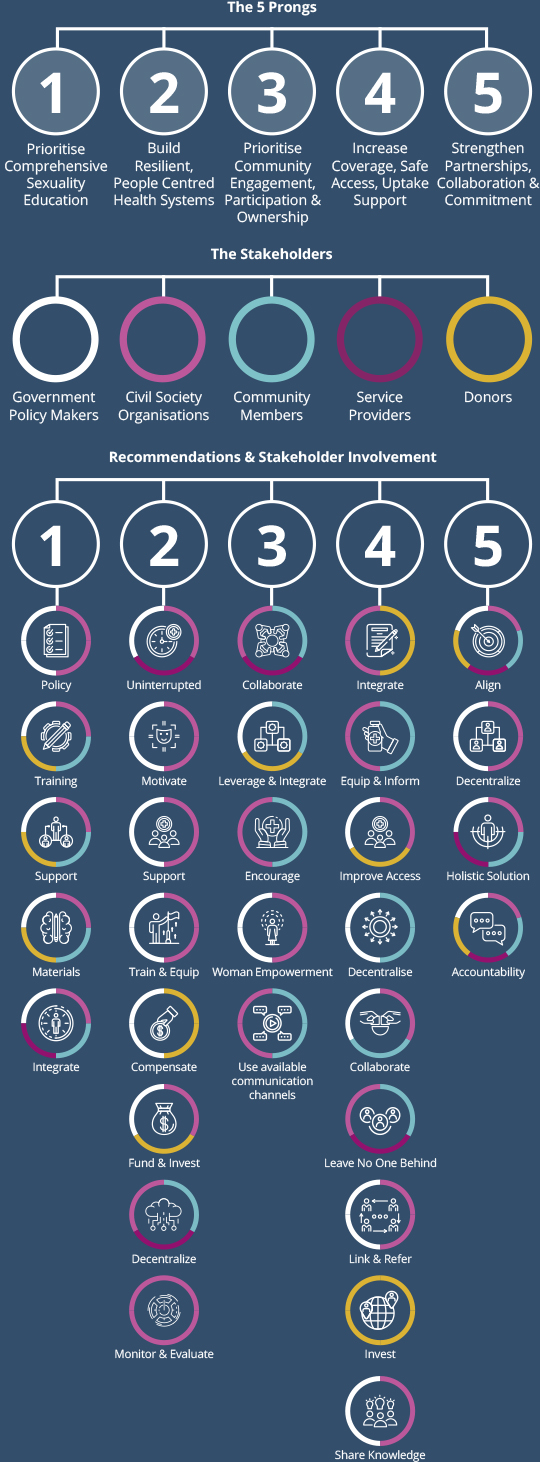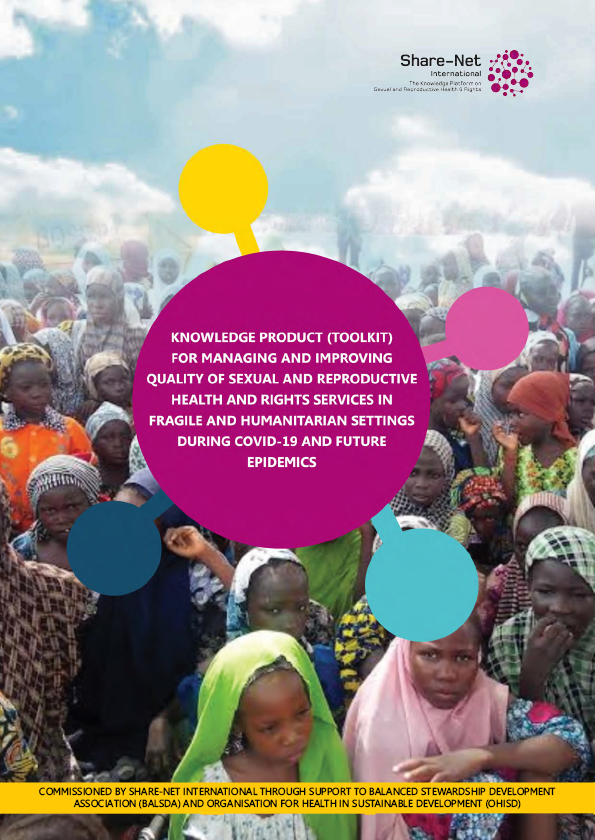Front & Centre
Improving access to Sexual and Reproductive Health Services in Fragile and Humanitarian settings in Nigeria and Cameroon during COVID-19 pandemic
In order to reduce the additional risk posed by COVID-19 to the already limited access many girls and women have to sexual and reproductive health services, as well as maternal, new-born and child health services in humanitarian settings, BALSDA and OHISD with the support from Share-Net International developed a knowledge product with a call to action to improve SRHR in fragile and humanitarian settings during COVID-19 and future epidemics.

Lessons learned
1. Project Design
Gathering the necessary background information was key towards the project proposal development. We also found that the Cohort series of webinars along with the involvement of locals from the project countries proved invaluable.
2. Project Implementation
It was difficult to get an appointment with the targeted policy makers. When a meeting finally took place, the policy makers had extremely limited time to discuss the project with CSOs.
Through persistence, this approach did ,however, lead to effectiveness, efficiency and the desired results.
3. Monitoring and Evaluation
Constant monitoring of project activities from inception and insistence on best practices helped prevent parties from deviating from the set project objectives and timelines.
Webinar/development of the knowledge product experiences:
Developing this toolkit is not that easy. Research/Advocacy exacts a price. We commit our energy, our spirit, our reputation. In all truth, we commit our vulnerability. At times we needed to regroup and seek support and remind ourselves that there is strength in numbers, and in order to find it, we need to go out and connect with people.
4. Dissemination
We had a robust dissemination strategy both off and online. We were able to share the knowledge product across the globe due to pre-existing network connections. Offline distribution took place in-country. Several Reproductive Health Coordinators went back to their states with copies to be distributed to facilities. The key success story here is the wider reach of the product and the promise for continuous use

Call to Action for uninterrupted access to SRHR in fragile and crisis settings during and after Covid-19

